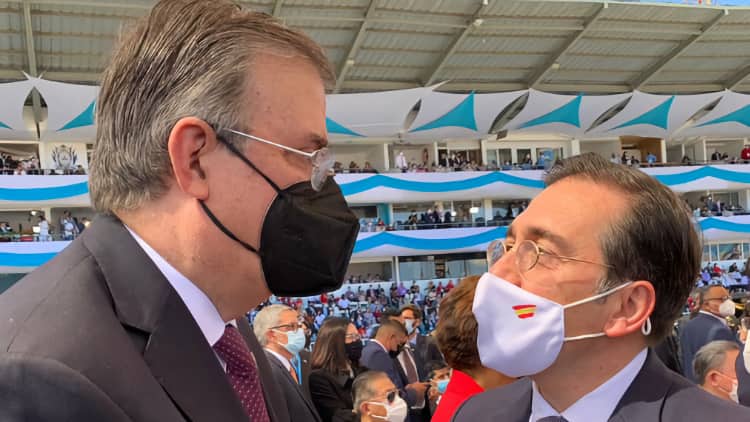Luis Ayllón
The Spanish government on Thursday granted agrément to appointed ambassador Quirino Ordaz, the former governor of Sinaloa, who was proposed for the post by the Mexican president, Andrés Manuel López Obrador, as its new ambassador to Spain.
The announcement of the granting of the approval was made yesterday on his Twitter account by the Mexican foreign minister, Marcelo Ebrard, who added a photo of the note verbale sent by the Spanish foreign minister, José Manuel Albares, informing him of the government’s decision.
Ebrard also wrote on the same social network thanking Albares “for his good offices and sympathy for Mexico”.
The two ministers spoke on the same Thursday in Tegucigalpa, where they coincided in the inauguration ceremonies of the new Honduran president, Xiomara Castro, a conversation that may have put an end to the uncertainty over the appointment of the new ambassador.
López Obrador surprised the Mexican political class when he announced in September that he had chosen Quirino Ordaz, a member of the opposition Institutional Revolutionary Party (PRI), to fill the vacancy left at the Embassy in Madrid by the retirement of the previous ambassador, Carmen Oñate. However, it was not until Ordaz stepped down as governor of Sinaloa at the end of October that the Mexican government requested the Spanish authorities’ approval.
The time that had elapsed since the Mexican president’s announcement led some Mexican media to venture that Spain had denied Ordaz’s request. The information was denied in Spanish diplomatic circles, and Albares himself pointed out that there was no problem with Mexico’s proposal.
In fact, as the request for approval had been processed at the beginning of November, the time that had elapsed without a response was shorter, although somewhat longer than is usual for diplomatic relations between two countries with such close ties as Spain and Mexico, which usually do not exceed a month or a month and a half.
Sources consulted by The Diplomat attributed the delay in granting the agrément to the desire of Pedro Sánchez’s government to send a message to López Obrador that reflected the government’s displeasure at the anti-Spanish statements made by the Mexican president, especially in relation to Spain’s role in the conquest of the Aztec country.






